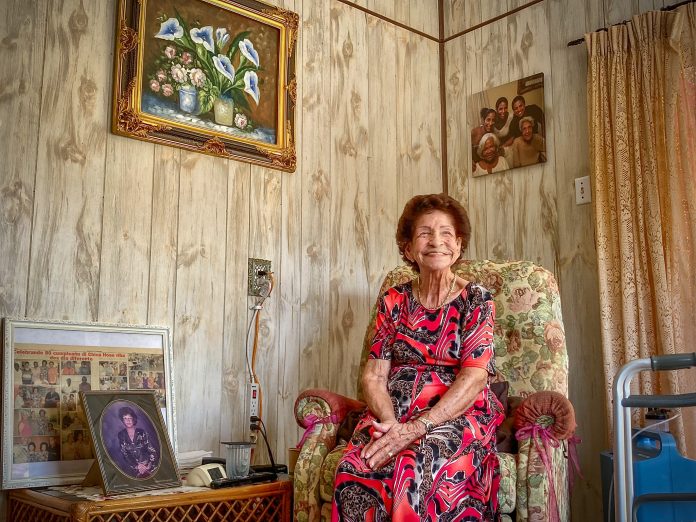From living with kerosene light to choosing movies on Netflix. From walking with pargati, to speaking with grandchildren face to face through a smartphone. This is what the grandmas of Aruba have experienced in a relatively short period.
Today, on International Women’s Day we focus on the contribution of the generation of women whom we consider today as ‘elderly people’. But the group is very diverse, some with more challenges than others. But they all have something in common. They all experienced rapid development, of culture, perception, among other because of tecnology which brings about lots of change.
The generation of Aruban women who were born during and after Second World War saw their position in Aruba evolve from housekeepers to working professionals. A large portion of this generation became the first group of Aruban women who went to school and made a career for themselves, be it as teacher, office worker, sales staff. With this change, a lot in this generation also made the choice to have less children, but continued facing the resposibility of being the ones who had to raise their children, many times on their own. But it is from this group that the activists were born for the bettering of society and equal rights.
The same way they saw technology develop, this group of Aruban women cu are now enjoying retirement developed from only being a grandma who is always at home to take care of her grandchildren or even great-grandchildren. Those who reached advanced age with good health are ladies who are very conscious of where they come from and how much potential their daughters, granddaughters and great-granddaughters have, thanks in part to their own effort. And they are women who still aspire to more knowledge, and as such, are even willing to learn how to use a ‘smart phone’, because to stop growing is not an option for them.
Illustrative Picture: Maria Francisca Jose-Pimentel, known as ‘Chica’ (91) who for more than 28 years volunteered at the Center of Activities for the Elderly, Kibrahacha. Mrs. Jose-Pimentel was not involved in the writing of this article.
















